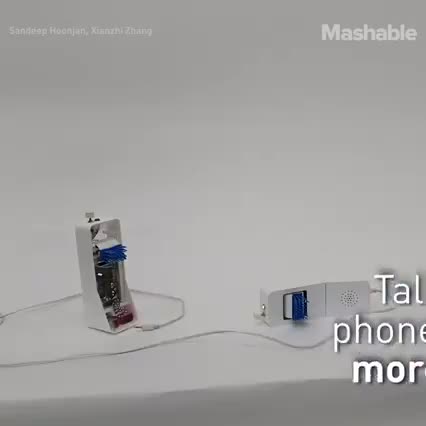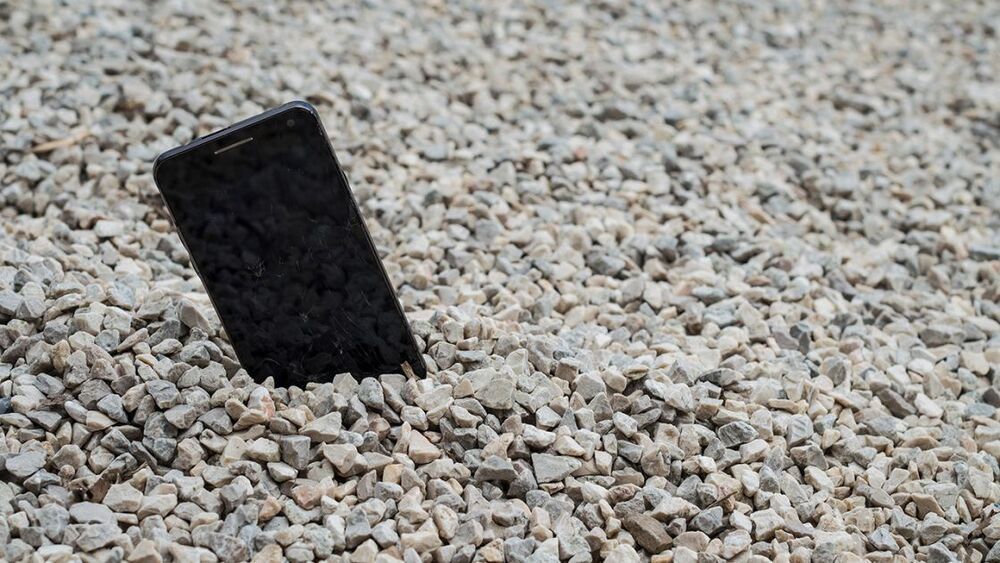We regret to inform you this phone licks you when the other line talks.


FEATURE (THE CONVERSATION) — The history of humans’ use of technology has always been a history of co-evolution.
Philosophers from Rousseau to Heidegger to Carl Schmitt have argued that technology is never a neutral tool for achieving human ends. Technological innovations – from the most rudimentary to the most sophisticated – reshape people as they use these innovations to control their environment. Artificial intelligence is a new and powerful tool, and it, too, is altering humanity.
Writing – and later, the printing press – made it possible to carefully record history and easily disseminate knowledge, but it eliminated centuries-old traditions of oral storytelling. Ubiquitous digital and phone cameras have changed how people experience and perceive events. Widely available GPS systems have meant that drivers rarely get lost, but a reliance on them has also atrophied their native capacity to orient themselves.
Monitoring your vital signs is becoming easier and easier these days, critical if you want to keep track of your general health and well being, and incredibly useful if you want to see how a life style, or dietary, change is playing out. In this video I look at two new companies that are utilising mobile phones to measure a whole raft of biometric data, simply and easily, and clinically tested to deliver medical-grade accuracy. And these are just first generation versions, who knows where this will take us, and what we will be able to monitor quickly and easily in the next few years.
Medical Diagnosis Software With Just A Smart PhoneIn the near future, your phone or a wearable of some description, will constantly be able to monitor all your health signs continuously ready to alert you to any worrying signs, and what they can do today is just the beginning of where we are heading.
With AI powered deep learning and other computing techniques, more and more analysis will become easily and quickly measured at home, so you can track all your biomarkers and vital signs so you can see how you are reacting to a new treatment, or a lifestyle change, or anything else you wish to know about.
If you haven’t already seen it why not check out this video on the other technologies that are set to revolutionise our lives in the next decade.

Today, the most common use cases are much more mundane, including smartphone-based games and apps like Pokemon Go or Apple’s Ruler app, which use the phone’s screen and camera rather than relying on glasses or another set of screens sitting on your face. The few companies who are actively producing AR glasses are mostly focused on work scenarios, like manufacturing and medicine.
Industry watchers and participants think that Apple has a good chance to validated and revolutionize augmented reality like it did with smartphones.

Introduction Samsung wasn’t as quick to embrace the display notch trend for the front camera even though many of its rivals had made the move years ago. That all changed in 2018 when the company revealed four different “Infinity” display concepts. Only then did it become apparent that Samsung was considering the full gamut of punch hole, notch and no-notch solutions for smartphone displays with significantly slimmer bezels.

Featuring a built-in computer, the Ultima shotgun envisages WiFi and Bluetooth connectivity and can synchronize with smart phones. It is intended to woo younger clients such as gadget enthusiasts.
Russian arms manufacturer Kalashnikov plans to start making its AK-203 assault rifle in India this year and wants to attract a wider audience with a hi-tech shotgun, chief executive Dmitry Tarasov said.


Blog — Bundex Film Archives coming to posthuman university.
As editor, sound engineer and roadie with director Bunny Dexter’s “Bundex Films”, the three of us (Eugene Smith was cameraman) travelled to various parts of the world making political, environmental and quirky documentaries during the first age of digital video. Bunny was also a judge at some international film festivals, and we actually won an award in Poland for one of our films. At NY film school, Bunny’s teacher was Marty Scorsese, who would call at Bunny’s flat sometimes when in London. We made two versions of a 3D hologram of Marty, of which he has one and I the other. After Bunny’s passing I inherited the huge shoulder-harnress digital camera which remains in my garage and has less capability than a modern smartphone, digital tape-decks and lots footage together with all rights, except for the lost Orson Welles tapes matter and story of his aristocratic Sicilian producer. More about this and other films later. I have boxes to sort through, and am sure I have forgotten some projects which will come as a surprise when I rediscover them. Will post at posthuman university side when sorted, this footage give unique insights from a period of very rapid evolution and transformation in film-making.
Documentaries include the Homeless and their Dogs, Gipsy persecution in Hungary, a study of Tattoo’s and Tattoo artists, Momento Mori – a film of an elderly lady after her death, and our pursuit of Cocoa plant agricultural sabotage in Brazil. There is unseen footage from these and other films, and interviews with Bunny before her death which I will edit together. She had an interesting life including appearances in Andy Warhol movies, and early success with a short film with Hollywood beckoning. Woody Allen was in her NY film school class, and many of her friends went on to become big stars, but B was too much of a socialite, and was unable to get her screen plays produced. At least one political biography that I have is very good, I might update it for sub-Hollywood production in the future. Anyway, Bunny had an interesting “career” and was close friends with Yoko & John Lennon from her guerrilla art days, Jimmy Hendrix, also Graham Chapman and some of the Pythons.

Today I’m excited to announce my new book called And TODAY it’s FREE on Amazon (instead of $7.99). So please download a free copy! And share with a friend!
Enter your mobile number or email address below and we’ll send you a link to download the free Kindle App. Then you can start reading Kindle books on your smartphone, tablet, or computer — no Kindle device required.
